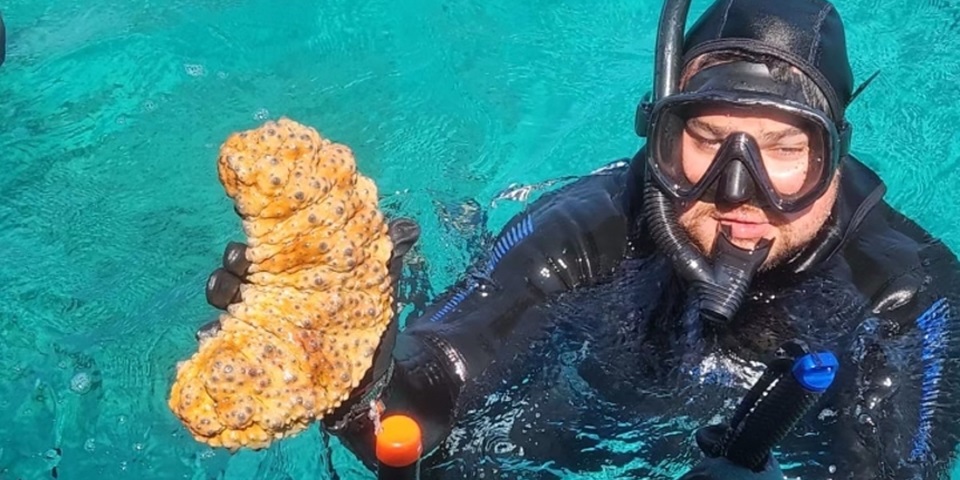News
Bringing back Australia’s first export: The sea cucumber

A new partnership has been struck with Indigenous-owned business Tidal Moon to realise the full potential of WA’s sea cucumbers.
“Australia’s first export was trade of sea cucumbers and our goal is to preserve and enhance our heritage while creating a business that will last for years to come,” Michael Wear, Malgana Traditional Owner and founder of Tidal Moon said.
“To do that we need to understand the full scope of opportunities this amazing animal presents – medical, nutritional, cultural – and how we can cultivate them onshore.”
Tidal Moon is partnering with Murdoch for scientific and cultural expertise to develop that knowledge, which will underpin a sea cucumber cultivation and processing facility based at Denham, Western Australia.
“We have an amazing location at Shark Bay – a world heritage area with 30,000 years of knowledge that presents us with this incredible opportunity for education, economic development and community building," Wear said.
“This partnership is about realising that opportunity and seeing how big it can be.”
Sea cucumbers have soft, cylindrical bodies and are found on the sea floor. They play a critical role in cycling the nutrients that maintain seagrass meadows and are sought after in Asian cuisine.
Tidal Moon’s research partnership with Murdoch aims to better understand the range of ecosystem roles, health and consumer benefits they provide, as well as the best way to bring cultivation onshore.
On signing the partnership agreement with Tidal Moon, Vice Chancellor Professor Andrew Deeks said the business presented a strong alignment with the University’s values.
The vision of Tidal Moon to build Indigenous capabilities, preserve the local ecosystem and develop an enterprise for generations to come is one that we wholeheartedly support,”
Professor Andrew Deeks
“To bring to bear the full range of Murdoch University expertise to realise this, across conservation, culture, health and food, presents an exciting partnership.”
Tidal Moon has trained 12 Malgana Traditional Owners in dive operations since launch to harvest sea cucumbers from the ocean floor. Moving the operation onshore will allow this workforce to grow significantly.
The work with Murdoch to achieve this is now underway with our leading algae research and One Health groups.
Under the leadership of Professor Navid Moheimani, Murdoch is working with the Tidal Moon team to develop and integrate algal waste-to-profit processes with land-based sea cucumber aquaculture.
This environmentally sustainable approach is expected to provide significant benefits to the Shark Bay industry.
Professor Sam Abraham, who leads the Harry Butler Institute's Centre for Biosecurity and One Health, is developing a biochemical profile on the sea cucumber which could open significant health research opportunities.
The Ngangk Yira Institute for Change is planning to explore the cultural and health significance from an Indigenous perspective too, while Kulbardi Aboriginal Centre looks at the education opportunities for First Nations students.
This work is all part of progressing Wear’s legacy.
“When you go, the only thing you leave is your knowledge. I want to leave as much of that as possible,” he said.
News
Bringing back Australia’s first export: The sea cucumber
Posted on
Topics